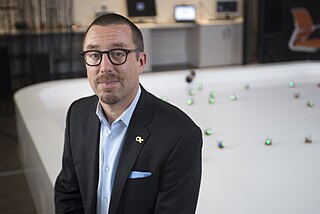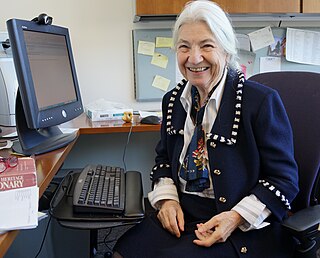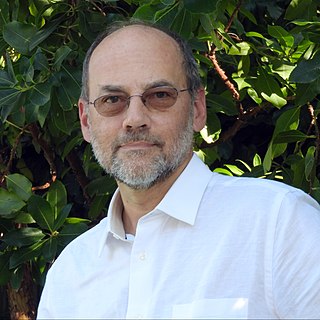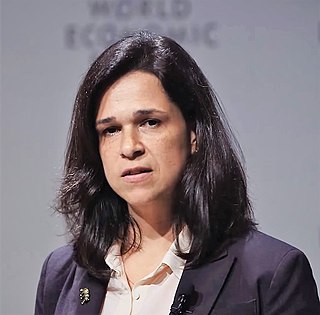
Lotfi Aliasker Zadeh was a mathematician, computer scientist, electrical engineer, artificial intelligence researcher, and professor of computer science at the University of California, Berkeley. Zadeh is best known for proposing fuzzy mathematics, consisting of several fuzzy-related concepts: fuzzy sets, fuzzy logic, fuzzy algorithms, fuzzy semantics, fuzzy languages, fuzzy control, fuzzy systems, fuzzy probabilities, fuzzy events, and fuzzy information. Zadeh was a founding member of the Eurasian Academy.
The University of California, Berkeley College of Engineering is the public engineering school of the University of California, Berkeley. Established in 1931, it occupies fourteen buildings on the northeast side of the main campus and also operates the 150-acre (61-hectare) Richmond Field Station. It is also considered highly selective and is consistently ranked among the top engineering schools in both the nation and the world.

Magnus B. Egerstedt is a Swedish-American roboticist who is the Dean of the Henry Samueli School of Engineering at the University of California, Irvine. He was formerly the Steve C. Chaddick School Chair and Professor at the School of Electrical and Computer Engineering, Georgia Institute of Technology.

S. Shankar Sastry is the founding chancellor of the Plaksha University, Mohali and a former Dean of Engineering at University of California, Berkeley.
David Ethan Culler is a computer scientist and former chair of the Department of Electrical Engineering and Computer Sciences at the University of California, Berkeley. He is a principal investigator in the Software Defined Buildings (SDB) project at the EECS Department at Berkeley and the faculty director of the i4Energy Center. His research addresses networks of small, embedded wireless devices, planetary-scale internet services, parallel computer architecture, parallel programming languages, and high performance communication. This includes TinyOS, Berkeley Motes, PlanetLab, Networks of Workstations (NOW), Internet services, Active Message, Split-C, and the Threaded Abstract Machine (TAM).

Ruzena Bajcsy is an American engineer and computer scientist who specializes in robotics. She is professor of electrical engineering and computer sciences at the University of California, Berkeley, where she is also director emerita of CITRIS.
Robert W. Brodersen was a professor emeritus of electrical engineering, and a founder of the Berkeley Wireless Research Center (BWRC) at the University of California, Berkeley.

Jitendra Malik is an Indian-American academic who is the Arthur J. Chick Professor of Electrical Engineering and Computer Sciences at the University of California, Berkeley. He is known for his research in computer vision.
Pravin Pratap Varaiya was Nortel Networks Distinguished Professor in the Department of Electrical Engineering at the University of California, Berkeley.
Lydia E. Kavraki is a Greek-American computer scientist, the Noah Harding Professor of Computer Science, a professor of bioengineering, electrical and computer engineering, and mechanical engineering at Rice University. She is also the director of the Ken Kennedy Institute at Rice University. She is known for her work on robotics/AI and bioinformatics/computational biology and in particular for the probabilistic roadmap method for robot motion planning and biomolecular configuration analysis.

Bruce Edward Hajek is a Professor in the Coordinated Science Laboratory, the head of the Department of Electrical and Computer Engineering, and the Leonard C. and Mary Lou Hoeft Chair in Engineering at the University of Illinois Urbana–Champaign. He does research in communication networking, auction theory, stochastic analysis, combinatorial optimization, machine learning, information theory, and bioinformatics.

René Vidal is a Chilean electrical engineer and computer scientist who is known for his research in machine learning, computer vision, medical image computing, robotics, and control theory. He is the Herschel L. Seder Professor of the Johns Hopkins Department of Biomedical Engineering, and the founding director of the Mathematical Institute for Data Science (MINDS).
Francis "Frank" J. Doyle III is an American engineer and academic administrator. He is a professor of Engineering and provost of Brown University.

Laura Ann Waller is a computer scientist and Ted Van Duzer Endowed Associate Professor at the University of California, Berkeley. She was awarded a Chan Zuckerberg Initiative Fellowship to develop microscopes to image deep structures within the brain in 2017 and won the 2018 SPIE Early Career Award.

Edward Ashford Lee is an American computer scientist, electrical engineer, and author. He is Professor of the Graduate School and Robert S. Pepper Distinguished Professor Emeritus in the Electrical Engineering and Computer Science (EECS) Department at UC Berkeley. Lee works in the areas of cyber-physical systems, embedded systems, and the semantics of programming languages. He is particularly known for his advocacy of deterministic models for the engineering of cyber-physical systems.

Ana Claudia Arias is a Brazilian American physicist who is a professor of Electrical Engineering and Computer Sciences at the University of California, Berkeley. Her research considers printed electronic materials and their application in flexible electronics and wearable medical devices.

Costas J. Spanos is the Director of the Center for Information Technology Research in the Interest of Society (CITRIS) at UC Berkeley. He is also the CEO of the Berkeley Educational Alliance for Research in Singapore (BEARS) and the Andrew S. Grove Distinguished Professor of Electrical Engineering and Computer Sciences (EECS) at UC Berkeley.

Chelsea Finn is an American computer scientist and assistant professor at Stanford University. Her research investigates intelligence through the interactions of robots, with the hope to create robotic systems that can learn how to learn. She is part of the Google Brain group.
Luca P. Carloni is a professor and chair of the Department of Computer Science at Columbia University in the City of New York.. He has been on the faculty at Columbia since 2004. He is an international expert on electronic computer-aided design.
Martin James Wainwright is a statistician and the Cecil H. Green Professor in Electrical Engineering and Computer Science and Mathematics at the Massachusetts Institute of Technology (MIT), a position he has held since July 2022. At MIT, Wainwright is also affiliated with the Laboratory for Information and Decision Systems, where he is a principal investigator, and a member of the Statistics and Data Science Center.












